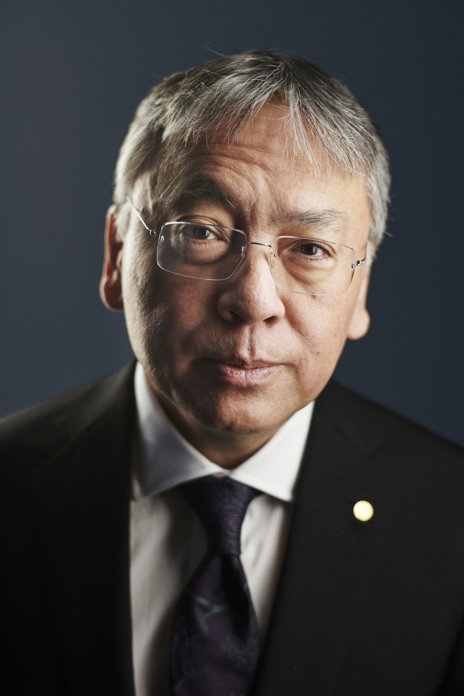Nobel Prize
The Nobel Prize in Literature 2017
 " ... Memory, time and lifelong deception are central themes in Kazuo Ishiguro’s works. Growing up in a Japanese family in Great Britain has colored his thinking and perspectives ... "
" ... Memory, time and lifelong deception are central themes in Kazuo Ishiguro’s works. Growing up in a Japanese family in Great Britain has colored his thinking and perspectives ... "
Biography
Biography
-
Kazua Ishiguro"Kazuo Ishiguro, a renowned British novelist, was born November 8, 1954, in Nagasaki, Japan, to parents Shizuko Michida and Shizuo Ishiguro. On May 9, 1986, he married Lorna Anne MacDougall. Their daughter, Naomi, was born in 1992 ... "
-
Kazuo Ishiguro: ‘Write What You Know’ is the Stupidest Thing I’ve Ever Heard"Kazuo Ishiguro, author of The Remains of the Day, Never Let Me Go, and most recently The Buried Giant, and oh, also our newest Nobel Laureate in Literature, turns 63 today. I have long admired Ishiguro’s work, which seems almost effortless, presenting its multi-faceted subjects with cold-water clarity while nimbly experimenting with genre, style, and subject ... "
-
How Kazuo Ishiguro’s writing won him the Nobel Prize in Literature – according to research"Kazuo Ishiguro has been awarded the Nobel Prize in Literature and, as a long-term scholar and fan of Ishiguro, I feel compelled to join the celebration. The Swedish academy aptly described Ishiguro’s works as possessing “great emotional force” which “uncovered the abyss beneath our illusory sense of connection with the world” ... "
-
Writing Advice From a (Newly Minted) Nobel Winner"It’s tempting to talk of writing—the art of it, the craft of it, the lifestyle of it—as a kind of romance. Writers of serious literature (according to, at least, many writers of serious literature) do not simply type stark words onto blank pages ... "
-
Kazuo Ishiguro: how I wrote The Remains of the Day in four weeks"Many people have to work long hours. When it comes to the writing of novels, however, the consensus seems to be that after four hours or so of continuous writing, diminishing returns set in ... "
-
Ishiguro, Kazuo" ... All Ishiguro's fiction exhibits similar characteristics. His style is subtle and understated, superficially clear but with troubled depths, as remarkable for what it does not say as for what it does. Critic Gabriel Brownstein observes that, in the course of an Ishiguro novel, "the weight of the unsaid grows heavier and heavier." Fellow novelist Penelope Lively describes this style as "sparse, precise and plain" ... "
-
Kazuo Ishiguro" ... Ishiguro's novels are preoccupied by memories, their potential to digress and distort, to forget and to silence, and, above all, to haunt ... "
-
Future Present (Kazuo Ishiguro)"Kazuo Ishiguro: I'm not much of a science fiction reader. I like James Cameron's type of science fiction in movies [Blade Runner], but I'm not really interested in reimagining the whole world and writing the details of everyday life—what cars will look like, what government will look like—80 years from now. In my fiction writing, I tend to start with a context, to ask a question: How does our childhood carry into our adult life? How do we slowly ruin our lives, become unhappy? ... "
-
Kazuo Ishiguro, The Art of Fiction No. 196"The man who wrote The Remains of the Day in the pitch-perfect voice of an English butler is himself very polite ... "